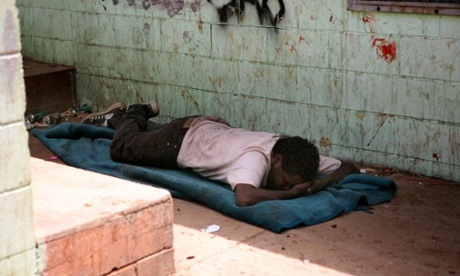
Mainstream medical services are failing Aboriginal communities, where the rate of Hepatitis C is rising, a peak Aboriginal health body has told a federal Senate inquiry.
The inquiry by the standing committee on health is examining the prevalence of the disease, testing and treatment options, associated costs, and methods to improve prevention and reduce stigma associated with it.
A public hearing in Sydney on Thursday heard submissions from stakeholders, including the National Aboriginal Community Controlled Health Organisation (Naccho), which called for improved access and funding of medical services for Aboriginal and Torres Strait Islander people.
As rates of the disease decrease among Australians overall, Hepatitis C is three times higher and rising in Indigenous populations, according to a 2013 study by the Kirby Institute. The worsening problem is mainly due to higher rates of unsafe drug injecting and possibly higher rates of incarceration, where the prevalence of intravenous drug use is much higher among Indigenous prisoners, according to multiple studies.
Lisa Briggs, CEO of Naccho, said current mainstream medical services are failing Indigenous people through a lack of access and affordability.
“For Aboriginal people to remain well and healthy, they need accessible and affordable health care and they need services that are able to manage and look after their long-term conditions,” Briggs told Guardian Australia.
“There are not a lot of bulk billing providers in the country, and that covers their affordability. You don’t have many bulk billing providers that also provide walk-ins … and that’s another benefit our health services provide.”
Hepatitis C sufferers are likely to also have other health issues, including mental illness, addiction and diabetes, Briggs said, which require a thorough and all-encompassing medical response.
“Aboriginal Community Controlled Health Services have proven time and time again to be the best model to provide comprehensive primary health care for these complex needs,” she said.
The high rate of Indigenous incarceration cannot be separated from health problems like Hepatitis C, said Briggs.
Despite making up just 2% to 3% of the general population, Indigenous people account for 27% of the total prison population. In the Northern Territory, the rate is above 86% of adult inmates and 97% of juvenile detainees.
“It makes a huge difference because they’re in confined areas where injecting drug use is part of the system, regardless of what prisons may say,” said Briggs.
More government support and funding of preventative and treatment programs through Aboriginal Community Controlled Health Services is needed to address the issue. Naccho has called for a reduction target of 50% in Hepatitis C rates among Aboriginal and Torres Strait Islander people, and for improvements in funding to provide certainty. It said if the federal government increased funding agreements to five years it would lessen the “haemorrhaging” of staff who leave for more job security.
“We’ve also called for more of our Aboriginal health services becoming [needle syringe programs], and that means that they’re able to provide clean needle syringe programs so it’s more accessible to clients that are injecting drug users. That will help minimise contraction and spread,” said Briggs.
Aboriginal health services are not a part of Hepatitis C health trials, and Briggs wants them expanding so GPs “can use those new drugs as treatment for our people”.
Briggs told Guardian Australia the Senate inquiry seems “quite supportive” of the Naccho submission, adding that Coalition MP and committee member Ken Wyatt pushed for a specific roundtable on Hepatitis C and for greater engagement with medical and specialist services.
Wyatt has been contacted for comment.
